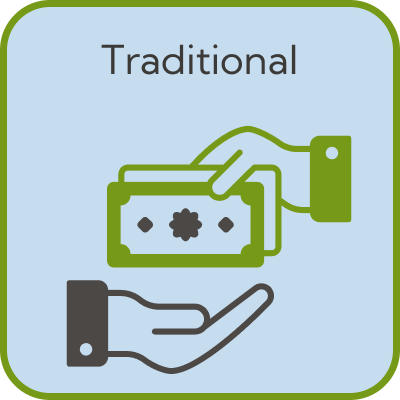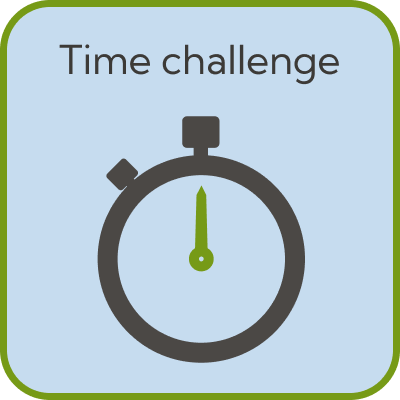Fundraise by participating in Self-organised zero waste day challenge!
Self-organised zero waste day challenge
Embark on a journey toward environmental stewardship while raising funds for your favorite charity through the Self-Organised Zero Waste Day Challenge. In this activity, you commit to producing zero waste for an entire day. This involves avoiding single-use plastics, reducing unnecessary consumption, and making sustainable choices in your daily routines. The goal is not only to challenge your habits and raise awareness about waste reduction but also to inspire others to consider their environmental impact.
Choosing to host a Self-Organised Zero Waste Day Challenge for charitable fundraising is a powerful statement. It highlights the crucial intersection between individual actions and global environmental health. By demonstrating your commitment to zero waste, you effectively educate and engage people on the importance of sustainability, which resonates well with donors who are environmentally conscious. The visual and narrative aspects of your challenge can powerfully convey the message and motivate donations, as people see the tangible actions you're taking for a cause.
To organise this event, start by selecting a day that you can dedicate completely to zero waste living. Prior to the challenge, educate yourself about sustainable practices like composting, recycling, and shopping from bulk bins using your reusable containers. Inform your friends, family, and broader social networks about your challenge and its purpose. Use social media to document your preparations and progress throughout the day, sharing tips, struggles, and successes. This visibility not only maximizes the impact but also encourages more donations.
For a Self-Organised Zero Waste Day Challenge, the Time Challenge or Wager Challenge models from Sponsivity would be most suitable. In the Time Challenge model, you could set up pledges based on how long you can maintain zero waste practices, not just for one day but possibly extending to a week or more. Donors can pledge per day, increasing their total contribution based on your endurance in sustaining zero waste living.
Alternatively, the Wager Challenge model fits well if you decide to set a high impact, ambitious zero waste goal. You could promise to achieve a series of increasingly difficult zero waste tasks if certain fundraising milestones are reached. For example, if the donation target is met, you might commit to a whole month of zero waste living or organizing a community clean-up. This model creates excitement and anticipation, encouraging donors to contribute more to see you tackle more significant challenges.
By blending your commitment to sustainability with effective fundraising strategies, the Self-Organised Zero Waste Day Challenge not only supports your chosen charity but also promotes a greener lifestyle, making it a win-win scenario for all involved.

Sponsivity offers you several ways to raise for Self-organised zero waste day challenge


🧠 Mental Challenge – Pushing Limits for a Good Cause
Mental challenges test focus, resilience, and determination, making them a unique and engaging way to fundraise. These challenges often involve problem-solving, endurance under pressure, or personal restrictions, such as memory feats, puzzle marathons, or digital detoxes. Fundraising through mental challenges allows participants to showcase their mental strength and discipline, inspiring supporters to donate.
Why Mental Challenges Work for Fundraising:
- Highly Inclusive: Unlike physical challenges, mental challenges can be attempted by anyone, regardless of fitness level.
- Great for Social Engagement: Challenges like chess marathons, escape room events, or language-learning goals are easy to share and track online.
- Endurance & Dedication: Tasks that test patience and willpower—like 24-hour challenges—demonstrate commitment, motivating donors to give.
- Unique & Entertaining: Creative challenges stand out, making them highly shareable on social media and drawing attention to the cause.
Examples of Mental Challenge-Based Fundraisers:
- Memory Challenge: “I’m memorizing 500 digits of Pi—sponsor me to support dementia research!”
- Endurance Puzzle Challenge: “Help me complete 10,000 Sudoku puzzles in a month for charity!”
- No-Talking or Digital Detox Challenge: “Support my 48-hour silent retreat—every donation helps my cause!”
Mental challenges showcase creativity, discipline, and perseverance, making them a fun and inspiring way to raise money while pushing personal limits.
Set bespoke rewards that suit mental challenge
- Join me in my challenge for 1 day
- Get defeated by me at chess online during the challenge
🧭 Exploration – Fundraising Through Adventure & Discovery
Exploration-based challenges take fundraisers on exciting journeys, whether it’s trekking through remote landscapes, discovering hidden landmarks, or completing a multi-day expedition. These challenges combine adventure, endurance, and curiosity, making them highly engaging for both participants and supporters.
Why Exploration Works for Fundraising:
- Inspires Donations: The sense of adventure and discovery makes exploration challenges compelling and shareable, encouraging more sponsorship.
- Scalable & Flexible: Challenges can range from urban scavenger hunts to long-distance expeditions, making them accessible to all levels.
- Great for Personal & Team Fundraising: Exploratory challenges can be done solo or as part of a group, allowing for corporate team-building fundraisers or solo endurance treks.
- Social Media Appeal: Stunning landscapes, cultural discoveries, and progress updates make for excellent engagement and storytelling.
Examples of Exploration-Based Fundraisers:
- Long-Distance Trek: “I’m hiking across the Scottish Highlands to raise £1,000 for conservation efforts!”
- City Scavenger Hunt: “Join me as I explore 50 historic landmarks in 24 hours for charity!”
- Multi-Day Expedition: “I’m taking on a 10-day solo trek through Patagonia—every donation supports my cause!”
Exploration fundraisers combine adventure with purpose, turning exciting journeys into powerful fundraising campaigns that captivate donors and make a real impact.
Set bespoke rewards that suit exploration
- Create a short storytelling video of the journey
- Pose for a selfie at landmark X
📅 Self-Organised – Fundraising on Your Terms
Self-organised fundraising challenges put you in control, allowing fundraisers to create a challenge that’s unique, personal, and tailored to their passions. Unlike organised events, self-organised challenges offer complete flexibility—whether it’s a solo endurance test, a creative personal challenge, or a community-driven activity.
Why Self-Organised Challenges Work for Fundraising:
- Full Flexibility: Choose the activity, location, and timing that works best for you, making fundraising accessible and achievable.
- Personal & Meaningful: Custom challenges allow fundraisers to connect with their audience by choosing something significant to them.
- Low-Cost & Inclusive: Without the need for event entry fees or logistics, anyone can participate, making it easy to involve family, friends, or colleagues.
- Perfect for Challenge Chain & Wager Models: Self-organised challenges can inspire others to join in, spreading the impact through viral nominations.
Examples of Self-Organised Fundraisers:
- Personal Running Challenge: “I’ll run 5K every day for a month—support my journey!”
- DIY Fitness Marathon: “I’m doing 1,000 push-ups in a day—every donation pushes me further!”
- Creative Challenge: “I’ll cycle across the country dressed as a superhero—help me hit my fundraising goal!”
Self-organised challenges allow fundraisers to turn their creativity, passions, and dedication into real impact, making it a powerful and accessible way to raise money for a cause.
Set bespoke rewards that suit self-organised event
- Rename the challenge in your honour
- Bring home-baked cookies to the finishline